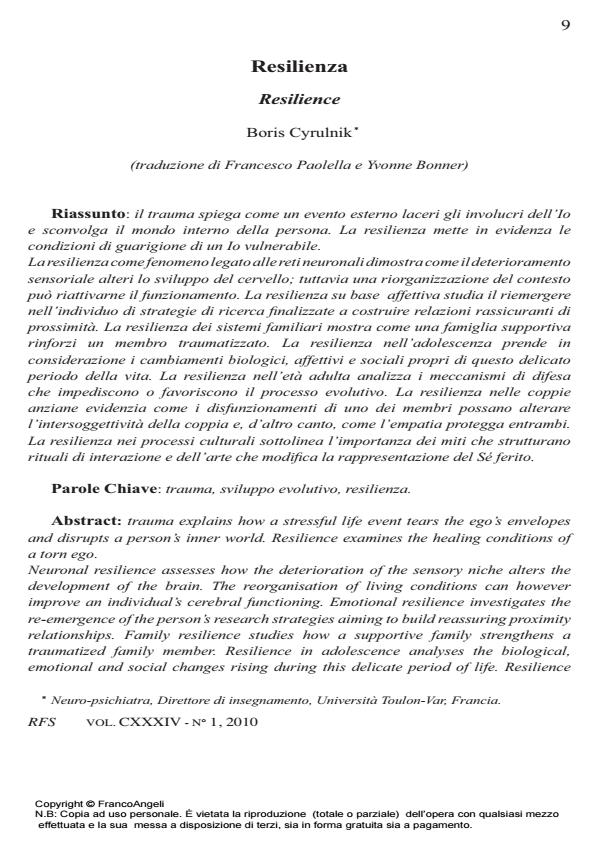Resilience
Journal title RIVISTA SPERIMENTALE DI FRENIATRIA
Author/s Boris Cyrulnik
Publishing Year 2010 Issue 2010/1
Language Italian Pages 11 P. 9-19 File size 301 KB
DOI 10.3280/RSF2010-001002
DOI is like a bar code for intellectual property: to have more infomation
click here
Below, you can see the article first page
If you want to buy this article in PDF format, you can do it, following the instructions to buy download credits

FrancoAngeli is member of Publishers International Linking Association, Inc (PILA), a not-for-profit association which run the CrossRef service enabling links to and from online scholarly content.
Trauma explains how a stressful life event tears the ego’s envelopes and disrupts a person’s inner world. Resilience examines the healing conditions of a torn ego. Neuronal resilience assesses how the deterioration of the sensory niche alters the development of the brain. The reorganisation of living conditions can however improve an individual’s cerebral functioning. Emotional resilience investigates the re-emergence of the person’s research strategies aiming to build reassuring proximity relationships. Family resilience studies how a supportive family strengthens a traumatized family member. Resilience in adolescence analyses the biological, emotional and social changes rising during this delicate period of life. Resilience in adulthood examines the defence mechanisms that hinder or sustain a developmental process. Resilient elderly couples highlight how the defi cits of one member can alter the inter-subjectivity of the couple, on the other hand, how empathy protects both members. Cultural resilience emphasizes the importance of myths that structure interaction rituals and the value of art that modifi es the representation of the injured self.
Keywords: Trauma, neo-development, resilience.
Boris Cyrulnik, Resilienza in "RIVISTA SPERIMENTALE DI FRENIATRIA" 1/2010, pp 9-19, DOI: 10.3280/RSF2010-001002